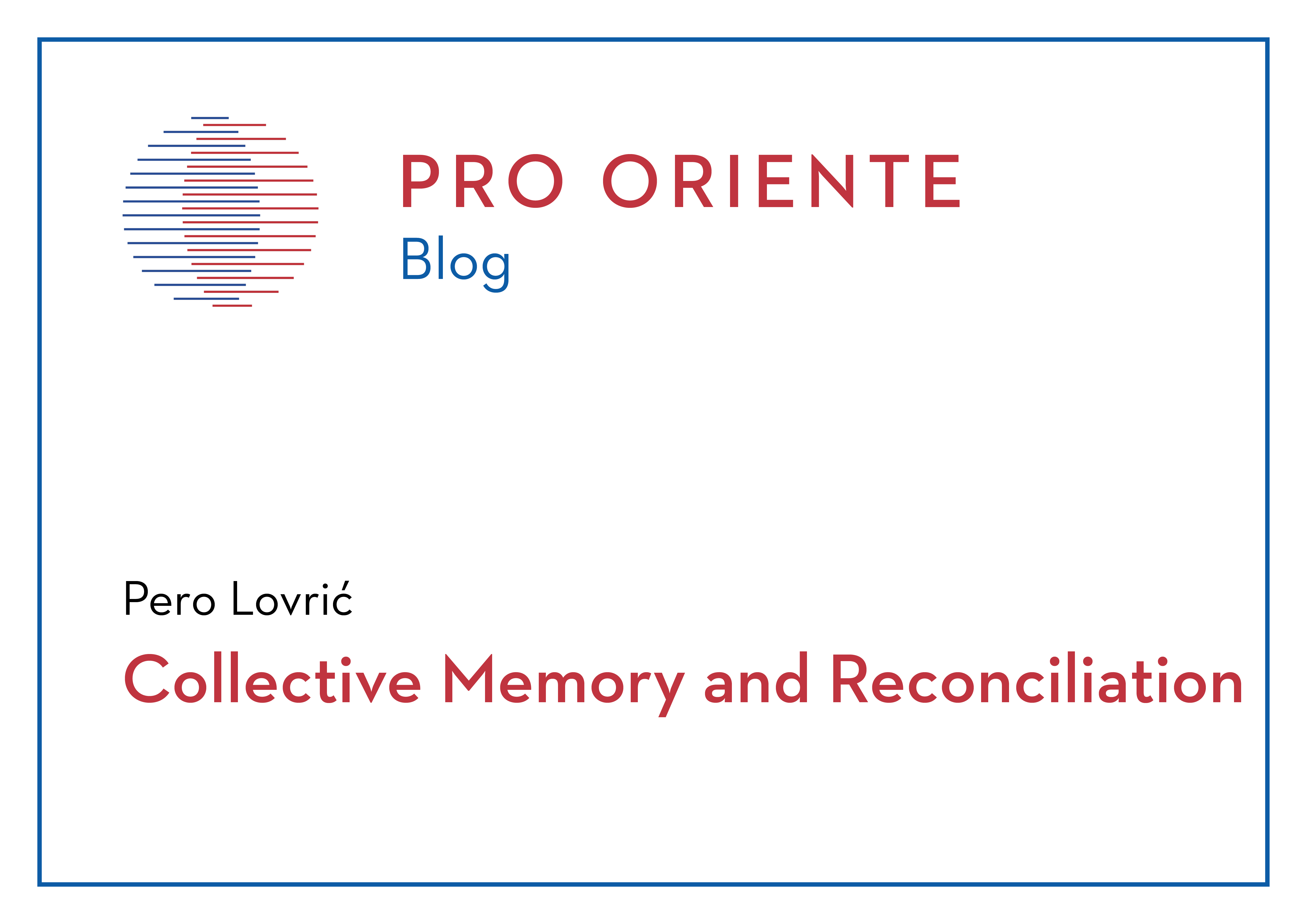Collective Memory and Reconciliation
09. September 2024
Thema: Healing of Wounded Memories

The question of whether memory should be transformed may seem debatable. Or at least, we should ask ourselves what is meant by transformation. When it comes to memory, the goal should be the right remembering, in which the principles of truth and justice have the greatest importance. We should therefore focus on the purification or rectification of memory, which enables the transformation of relationships. Correct shared memory is the prerequisite for forgiveness, reconciliation, and healing. These principles are the extensions of the Gospel proposition “The truth will set you free” (John 8:32) and should be the basis of any political theology. When two groups of people establish enough truth about their common past, it seems that they can create a creative and life-enhancing reality.
Franco-German reconciliation
In this respect, when talking about collective memory and reconciliation, the example of the relationships between France and Germany is a very interesting one. The two nations, which for centuries had seen themselves as hereditary enemies, have managed to achieve an institutionalized reconciliation and friendship. The last stage before the reconciliation was nonetheless the atrocity of Nazism and the catastrophe of the Second World War. It should not be forgotten that this reconciliation was the basis of the European Union. Thanks to the vision of French Foreign Minister Robert Schumann and the cooperation of German Chancellor Konrad Adenauer, the European Coal and Steel Community was founded in 1951. Schumann's aim was to make a new war 'not only unthinkable, but also materially impossible' through the joint control of the Ruhr area, Germany's most important industrial region. This concrete decision led to the Treaty of Rome in 1957 and the further preparation of today's European Union, which was founded in Maastricht in 1992. One can criticize various aspects of the European Union, but in any case, it has proven to be an impressive peace project for the European states. As far as the Franco-German friendship is concerned, it was confirmed most strongly in the Élysée Treaty of 1963 and is still being realized today in countless partnerships. That Germany and France are called the engine of Europe is probably already known to everyone.
One might now ask what this rough summary of the Franco-German partnership has to do with the role of theology in reconciliation. We must not forget that the goal and object of theology must be concrete life and that speculative theology must always pay attention to this. The lived practical theology, like the one of Robert Schumann, who in 2021 was declared venerable (heroic in virtue) in the Catholic Church, is decisive for allowing the new to emerge from the wounded relationships between peoples. After the clarification of the past, after the restitution of what justice (judicial justice included) demands, after the forgiveness of what is to be forgiven, is the time of new visions and of contributing to the construction of the Kingdom of God.
Dialogue
At the beginning of this text, we talked about the importance of correct common remembrance, and it can rightly be objected that this can sound like something simple and naive. As if the people in conflict should just meet quickly to establish the historical events and then everyone would be happy and satisfied.
Pope Francis, who is greatly influenced by Romano Guardini's theology, adopts Guardini's teaching on oppositions and contradictions. In short, oppositions are in fruitful tension and can produce a higher synthesis. Contradictions, on the other hand, require a clear decision between good and evil and cannot produce a fruitful synthesis. The Pope emphasises that ideologies and conflict-seeking politicians turn oppositions into contradictions and thus create a reality in which a solution is not possible because the other is seen as exclusively evil and therefore our decision against him is demanded. We now come back to the common remembrance, and in this perspective, we can ask ourselves whether the common remembrance of the peoples in conflict is often understood as a contradiction or imposed on us as such. This must not be the case. In shared wounded memory there are only oppositions, and a synthesis is always possible. But the path to this is a humble and trusting dialogue that makes a breakthrough possible. There is a very important theological point that the Pope calls overflowing. With the expression overflowing he is referring to that higher synthesis that comes from the work of the Holy Spirit, that creativity that makes a new understanding of the things possible and that is enabled through dialogue.
The question of how to remember correctly is therefore not an easy one, and often there are historical events where consensus seems impossible. Regarding the former Yugoslavia, we can certainly think of several such events. That is why our ecclesiastical institutions in particular are responsible for providing the framework for this kind of dialogue, in which the unexpected of God is taken into account.
Backgrounding and vision
The episcopal theologian Miroslav Volf writes about a certain backgrouding of the memories of evil. When the recognition of truth and justice leads to forgiveness and reconciliation, then a backgrounding of hurt memories can be created. They almost no longer come to mind because a new reality has appeared. Much has been written about this new reality in recent years, using the concept of the theological imagination. We think of the theologian William Cavanaugh, who is very influenced by Zizioula's theology, or the book L'imagination theologico-politique de l'Église written by Sylvain Brison. The new is first born through grace as imagination and thus also made possible in reality. Finally, we think once again of Robert Schumann, of his imagination and his project to make war unthinkable and even materially impossible.
This article is therefore a plea for such concrete projects arising from dialogue, also in the countries of the former Yugoslavia.



